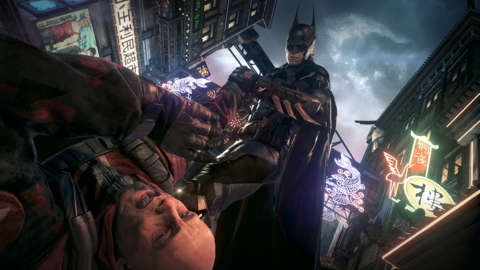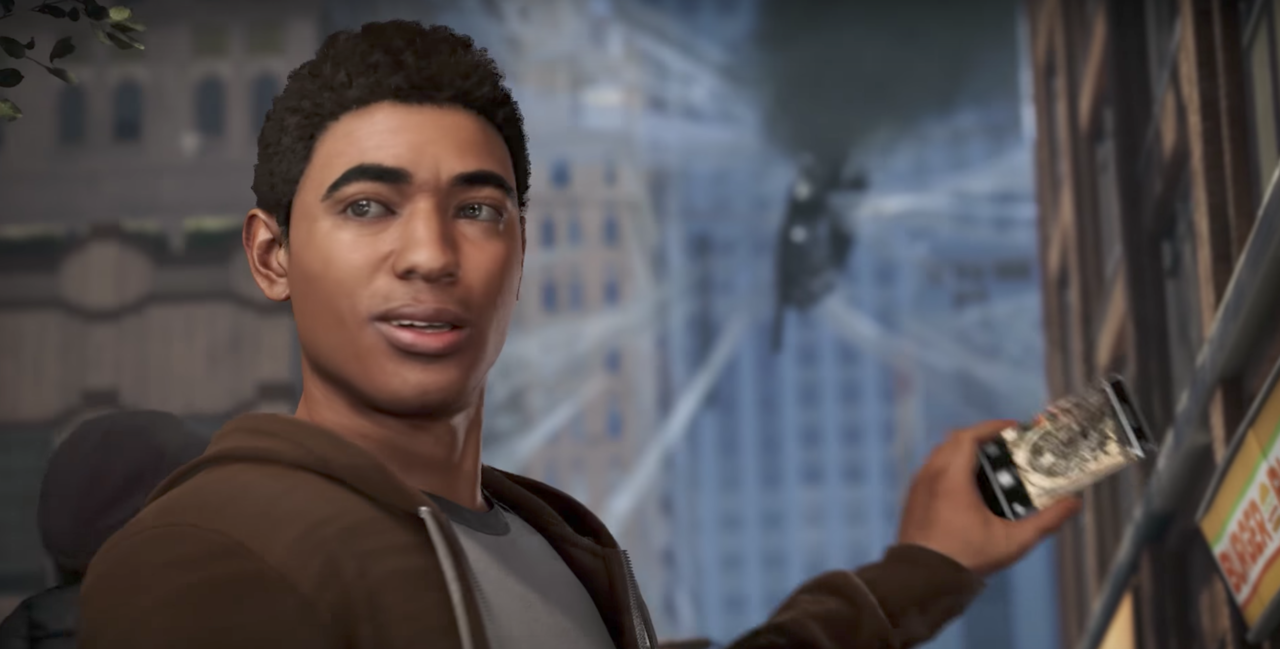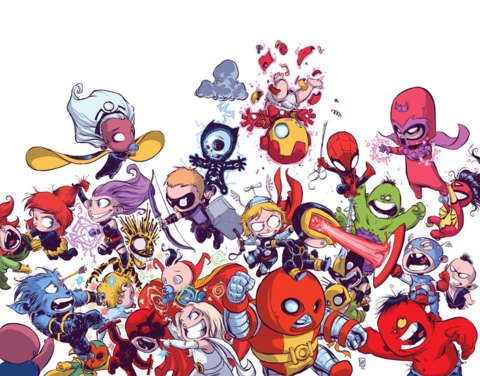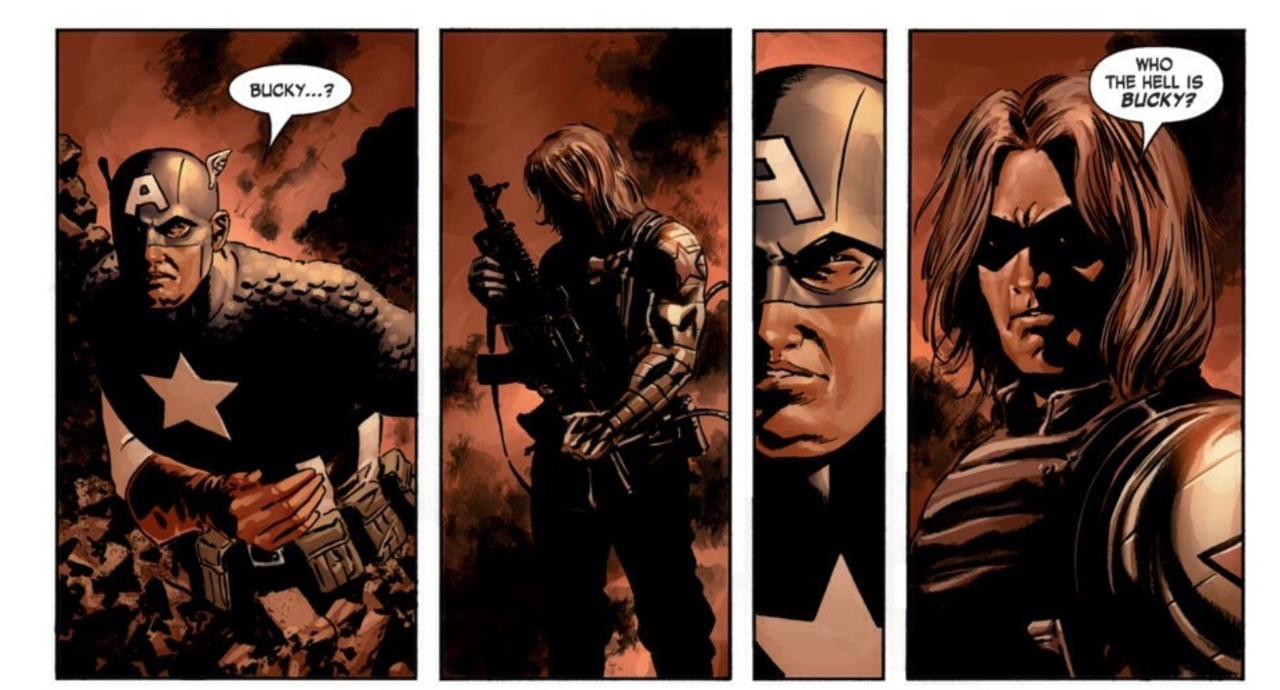It's difficult to ignore the massive critical and commercial success of Marvel Studios' superhero films. With each consecutive release, the studio has managed to consistently craft unique and entertaining stories with the company's extensive roster of characters and properties. Regardless of how you feel about the system Marvel Studios has built to produce its films, the company doesn't show any signs of slowing down.
While Marvel's films continue to do well, its games division has only just recently started to grow with its myriad mobile titles and collaborations with big-name studios in the industry. The company's push to get more involved with gaming is a fascinating shift; historically, the medium remained mostly reserved for movie tie-ins or the occasional gaming crossover. For a time, there existed few high-quality Marvel game experiences for people to latch onto--at least, in the way that people did with Warner Bros.' Arkham series. But with upcoming Marvel games, like Insomniac's Spider-Man and Square Enix's Avengers, Marvel's once inconsistent game offerings seem like they could be a thing of the past.
At E3, we got the chance to chat with Marvel Games vice president and executive producer Mike Jones, discussing what prompted Marvel to enter games in the first place, his philosophy towards creating and managing the production of superhero games, and how the success of Rocksteady's Batman: Arkham series affected Marvel's approach.
GameSpot: Marvel properties mostly appeared as tie-ins to other larger media projects. At what point did you start thinking about entering games at a more serious capacity?
Mike Jones: It was really when my boss Jay Ong joined [Marvel Entertainment]. He comes from Microsoft and Blizzard and has a very long career in the business side of gaming. With the tremendous success of Marvel's films and shows, and our long history with telling great stories and creating characters in publishing, Marvel wisely looked at the business and asked, "Hey, why are our games not as great as our films and TV shows?" Games shouldn't be a derivative business; it should be a pillar of the brand, so the company found Jay and then he found some game professionals, like our creative director and longtime Marvel Publishing editor, Bill Rosemann, and me.
At Marvel, we began to understand that so many of our fans interact with our characters, our brand, and our stories through gaming, so it became important for us to put truly unique and high-quality products out there. And we found the best way to do that is to partner with the best, as we're only as good as our game partners. While we've had incredible success with our live-service titles--Contest of Champions, Future Fight, Puzzle Quest, and Marvel Heroes--we've been hard at work on creating big console titles. And it's only now that we've started to show the world what we're working on. Our strong presence at this year's E3 has been a historic moment for us as a brand in the gaming space working with such incredible partners, but it's really just the beginning in our minds. We want to continue to surprise and excite our fans.
It shows. When I was watching the Spider-Man footage and saw the way Insomniac animated Spider-Man's movements and attacks, I could tell you guys have been working hard to do your research. This isn't a typical tie-in action game with a superhero inserted in; it was a clear that Insomniac studied Spider-Man's fighting philosophy and the way he moves.
Around the office we call those sort of tie-in games a "brand slap," and that's a dirty word to us. Oh, yeah, you built a game, you built a mechanic, and you slap the character in there. But you don't really dig deep into what the DNA of the character is, what the DNA of the experience is, what makes a unique and great story for that character, nor do you lean into that for what the overall gameplay experience is.
Why Are Video Game Adaptations Good Now? | Spot On Fallout 4 Next Gen Update Comparison Fallout 4 Steam Deck Verified Gameplay ALIEN: Rogue Incursion - Announcement Teaser Trailer Stellar Blade - 13 Things I Wish I Knew S.T.A.L.K.E.R. 2: Heart of Chornobyl — Official "Not a Paradise" Trailer Manor Lords - Official Medieval City Builder/RTS Launch Trailer Honkai: Star Rail - "Then Wake to Weep" | Version 2.2 Trailer Devil May Cry: Peak Of Combat | Dante: Blazing Tempest Gameplay Trailer SAND LAND — Official Launch Trailer Sea of Thieves Season 12: Official Content Update Video Stellar Blade - Hard Mode No Damage Gigas Boss Gameplay
Please enter your date of birth to view this video
By clicking 'enter', you agree to GameSpot's
Terms of Use and Privacy Policy
With the Spider-Man game, we talk a lot about how he is not a brawler; he's an acrobatic improviser. He has mobility, super-strength, tech, and webs; there's like a whole complex ecosystem of mechanics and things to draw upon. The combat and storytelling that happens in the game's action, and the scale of it was really important to us. It was one of the reasons that we chose that mission [for the Sony press conference]. It steadily builds in scale, but it also shows some stealth, combat, open-world web-slinging, parkour, and a bit of spectacle. It was a sampler of everything to give people a clear idea of what this experience is going to be. We're luckily about 10 minutes down the road from Insomniac, so we go there two, three times a week to look at gameplay, cinematics, and story. We're invested and collaborating very closely on that game.
Has the success of Warner Bros.' Arkham series influenced your approach to games? Has the quality of those games played a part in encouraging you into entering gaming?
I'm personally a huge fan of the Arkham series; I've Platinumed every single one of those games, with the exception of Origins--because I think that one had an online component that I didn't get all the Trophies for--but I'm a huge fan of what DC and Rocksteady have done with Batman, creating a very unique take on the franchise that stands apart from the films and comics. When I look at Arkham's mechanics and story and think about where it sits in the pantheon of DC and gaming, it's massively successful and innovative not just as an action game, but as an experience. Even if you took Batman out of it, those games would still be compelling to play. Rocksteady and DC didn't rehash stories that you had seen or heard; of course, they took inspiration from the animated series and the films, but at the end of the day, it felt authentic. The recipe that those games created resonated with everyone, myself included.
The Arkham games...inspired us to lean into our characters and trust that nailing the uniqueness of each character experience is really what's going to make the gameplay compelling.

But what Arkham tells all of us is that you can do a unique take on characters in a game and tell a story that people care about. You can do a take on a character that people remember and connect with that isn't derivative of anything else. That really challenges and inspires us to really lean into what makes a character unique and then bring that into the experience. We look at Spider-Man, we dissect it, and we ask: "What's essential to a great Spider-Man story and the superhero power fantasy of controlling him? And what's essential to telling Peter Parker's side of it?"
The same thing goes with Avengers: "What makes an Avengers story unique and different from a Spider-Man story or even a Defenders story? In a sense, we've learned from all kinds of great storytelling in gaming. And the Arkham games--while we're not necessarily trying to copy any particular thing that Rocksteady has done with them--inspired us to lean into our characters and trust that nailing the uniqueness of each character experience is really what's going to make the gameplay compelling. It's not a checkbox of mechanics. That's what's paramount to us. We love the Arkham games and the healthy competition they inspire in us, but we also want to evolve and do better.
With all these games--and especially that Miles Morales name-drop--do you have any intentions of making them be a part of a shared Marvel universe?
Marvel Studios is very centrally controlled; they bring in directors and writers for each individual project and they have a master plan of everything they're doing and how their films connect. The structure of their business works a little differently from us. Because we're working with individual developers, publishers, and licensees, we don't want anybody to be handcuffed or bound by limitations preventing them from using a character because somebody else is. Early on, we saw value in [a shared universe], but we want to do what's best for each individual game, first and foremost.

That said, we do feel like, years from now, we want to keep the door open for some exciting things that people have never seen before in games. We certainly don't want to paint ourselves into a corner, nor do we want to contradict ourselves. But right now we're focused on making the best possible games that we can, and then when there's opportunity to do new crazy daring things, we're going to jump at it. We want to break the mold and try to do some crazy stuff. We're not bound to anything just yet.
Like Marvel Studios, does Marvel Entertainment also have a large roadmap of what games you want to create and when they'll release?
We absolutely have a roadmap. We have some incredible mobile, console, and VR games planned that I can't announce or talk about today. We are curating our portfolio and trying to find the best match for character, partner, genre, platform and trying to not just see who wants a license to make a game. We're actually very active in planning what are the right experiences for the right franchises for the right platforms, as well as finding the right partners who can provide the best of that.
A lot of times partners come to us and tell us they're really passionate about a character and have an amazing idea for a project. While other times, we have partners and developers that we really respect and want to work with. It's definitely music and lyrics, and we're always trying to find those perfect marriages.
Marvel Studios decides who directs a film based on a character's genre and type of story they're in, so we're similarly thinking the same way of who would be perfect for a Spider-Man or an Avengers game experience. We want to make sure that we pair the right characters and the right franchises with the best possible developers. There is a clinical portfolio management excel spreadsheet component to this process, but more importantly, it's about passion. Teams are going to work on a game for three or four years, so the quality and the authenticity of the experience lives or dies by the passion and the vision of the teams that we're working with. We're constantly looking for development teams and publishers who love Marvel and are excited to tell a story or bring a particular experience to life. We're here to support that drive. We think of ourselves as kind of facilitators in that sense. We want each of our partners to be the vision holder for their games.
Have you ever thought to license out Marvel properties to smaller "indie" studios too?

Oh, absolutely. We're looking at mobile and we're looking at VR. Of course, Insomniac is an independent studio, but in terms of the smaller scope you suggest, absolutely. I think from a strategy and portfolio standpoint, we're making sure to get our big behemoths set up first. We have our live-service games, mobile games, and big console games. But once all of those tent poles are established, I think our next step would be to create smaller, interesting indie-made games. I'm not announcing a new game, but as an example, Skottie Young's artwork would be a perfect match for a fun indie game. There are all of these little things that we think about that we're eager to look into.
Of course, we have a smaller team with limited time and resources, so we're more focused on the big and important stuff first. But absolutely, the independent space is where so much creativity in publishing has come from. So many writers have taken their shots at Frank Miller's Daredevil and reinventing that. Reinterpreting characters over the years is what has made so many Marvel characters and stories great. We absolutely want to carry that philosophy into gaming, which is a space that has had such rapid experimentation and strong artistic vision.
How do you decide what Marvel properties are made into games? Is it mostly related to what films are being made by Marvel currently, or do you get to have your own freedom choosing properties?
Yes and no. Obviously, many of our characters have been popular over decades of publishing with over 8,000 characters, some of which have been extremely successful, some of which have been forgotten in time. There are characters like Spider-Man, Avengers, Guardians of the Galaxy, and Defenders, which are all properties that have a natural awareness and fan affinity. And we absolutely want to make sure that we deliver on those, but I think we're also interested in plucking some characters from obscurity that you may not have not heard of and making a game around them. I never would have thought my mom could be an Ant-Man fan; she even didn't know what an Ant-Man was until she saw the movie and then, boom, she loves it.
We don't see any reason why we can't do that in gaming, through an emotionally connected interactive experience. Bill loves to say, "People love all of our characters--they just haven't met them yet." And so we want to deliver the super-exciting characters, the obvious ones that everybody wants, but we're very much looking at how else can we do bold and exciting things and introduce people to new characters they may not have yet met.
A dream Marvel game for me would be an MGS-style stealth-action game starring Captain America and Winter Soldier with an espionage thriller story akin to Ed Brubaker's Captain America run. Please tell me that has crossed your mind.

Oh, gosh. Ed Brubaker's Captain America would be great. You can do so much with that: you could use Winter Solider, Black Widow, or any of those SHIELD characters. Captain America, Red Skull, and Nick Fury definitely have a Metal Gear Solid sort of flavor to them, so I personally would love a game like that. That's definitely something that has crossed my mind. Absolutely.











